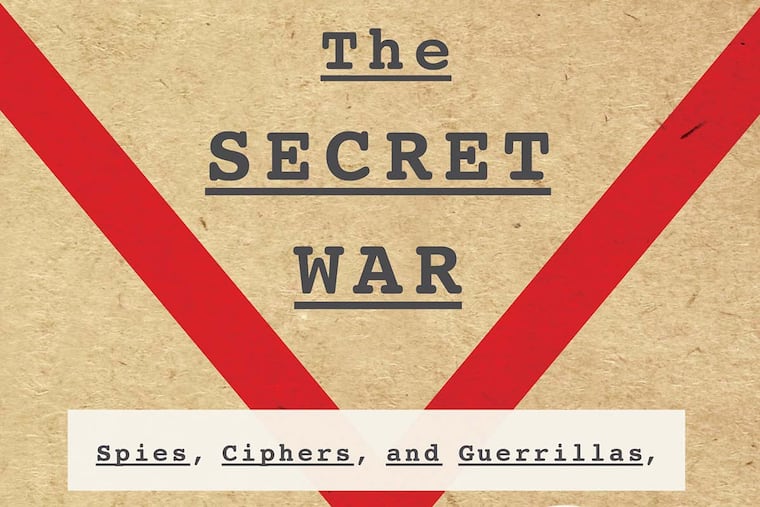'The Secret War': Masterful history of the wasteful art of espionage
At first glance, Joseph Rochefort was about as unlikely as a war hero gets. A mediocre (at best) naval officer, he narrowly escaped court martial when a destroyer on which he was the duty officer dragged its anchor in San Francisco bay amid six destroyers.

The Secret War
nolead begins Spies, Ciphers, and Guerrillas
By Max Hastings Harper. 640 pp. $35
nolead ends nolead begins
Reviewed by Paul Jablow
nolead ends At first glance, Joseph Rochefort was about as unlikely as a war hero gets. A mediocre (at best) naval officer, he narrowly escaped court martial when a destroyer on which he was the duty officer dragged its anchor in San Francisco bay amid six destroyers.
He was transferred to cryptoanalysis when fellow officers noted his penchant for crossword puzzles and bridge. It was Rochefort who played the key role in cracking the Japanese codes that allowed the smaller U.S. fleet to anticipate a June 1942 attack on Midway island, sink four carriers and a cruiser, and turn the tide of war in the Pacific.
Yet Rochefort was unlikely only if one sees espionage as a glamorous job. As Max Hasting points out in this magisterial work, it is often a slow, frustrating search for a flash of light in a corner of an enormous, dark room. Even when leaders note the light, they often ignore it when it fails to match their preconceptions.
Hastings, a former foreign correspondent and newspaper editor who has written more than 20 books, calls intelligence-gathering inherently wasteful: "Perhaps one thousandth of one percent of material garnered from secret sources by all the belligerents in World War II contributed to changing battlefield outcomes," he says. "Yet that fraction was of such value that warlords grudged not a life, not a pound, rouble, dollar."
The book is a treasure trove of anecdotes, including comic misadventures, epic fights within intelligence communities, and staggering blunders, much of it presented with Hastings' droll British understatement. After Japan's defeat, he writes, one colonel "acknowledged ruefully that it would have been prudent to research America's actual and potential war-making powers before embarking on a conflict with it."
For the American reader, perhaps the biggest takeaway is the staggering scope of Soviet efforts after World War II to speed their acquisition of an atomic bomb. Accomplished largely through British and American informants, Hastings calls this "the most important espionage story of the war." Some of the figures in that story, including Kim Philby in Britain, Klaus Fuchs on the West Coast, and Alger Hiss in the State Department, became household names in the postwar years.
Not Joseph Rochefort, however.
He returned to midlevel obscurity, without official recognition until 1985, almost a decade after his death, when he was posthumously awarded the Navy's Distinguished Service Medal, followed a year later by the Presidential Medal of Freedom.
Paul Jablow is a former Inquirer editor and writer.